SERVICEMEMBERS from Combined Joint Task Force - Horn of Africa traveled throughout remote regions of Djibouti in March, providing medical and public health aid during a medical civil action program. The MEDCAP team, made up of Soldiers assigned to the 489th Civil Affairs Battalion, 360th Civil Affairs Brigade force-protection personnel, Sailors from Camp Lemonier's Expeditionary Medical Facility, and medics from the 414th Civil Affairs Battalion, visited several villages in the Gaggade Desert.
During the MEDCAP, the joint-service team administered the de-worming medication Albendazole, over-the-counter drugs for minor ailments, and provided acute care to more than 2,000 people.
"What we are doing here is a proven and effective public health intervention. Administering Albendazole to every eligible member of the community is a recommended practice in this part of Africa," said Maj. Remington Nevin, a public health physician assigned to the 360th. "In addition to killing roundworms, which we feel is the principal benefit, this same medication can help to eradicate Filariasis as well as a number of other neglected tropical diseases."
To plan the project, CJTF-HOA worked with the U.S. Agency for International Development and the Djiboutian minister of health to identify areas of the country where health care is not easily accessible.
"They were not looking for sites that were close to the main road at all. They were really looking for the sites that were in the remote regions," said the MEDCAP's mission commander, Lt. Col. Todd Nord of the 360th.
Rocky terrain leading to areas like the Gaggade Desert can present challenges for those who are willing to drive into it.
"It is not flatland and desert as one may think of when they think of Africa. There are mountainous ranges and regions and gorges, which make access to rendering health care to people somewhat difficult," said Col. Lorrie Oldham of the 354th Civil Affairs functional specialty team, currently assigned to the 360th. "The United States government and its military services are able to get, in concert with the Djiboutian government and the minister of health, to these remote locations to provide healthcare."
In addition to the Djiboutian government, it is necessary for CJTF-HOA to obtain the respect and permission of tribal and village elders to treat the citizens of their villages.
"When we get the permission of the village chief to come here, then it is very important that we show up, because they then, via word of mouth, spread the word out to the outlying community," said Oldham. "It's not as simple as a TV or a radio or a newspaper or Internet or Twitter or text messaging or any of those things that are out there; this is truly word of mouth. People will come early. They will walk miles. Usually, when we pull up to a village to set up, there are about 100 to 200 people waiting on us to get started."
The presence of village leaders helps the MEDCAP team gain the trust of the people they treat. In one village, village chief Ali Gadito Ali made sure the citizens of his village witnessed him taking a dose of Albendazole before assisting in its distribution.
"They don't know you, and they know me. Of course they get more confidence and they are happy when they see me right here. I showed them the good example. I drank it up and everybody started drinking it. If I don't drink it, nobody is going to drink it. We really appreciate what you all have done for us and we welcome you here. It is very beneficial for the village, what you have done for us. I would like to thank all of you," he told the servicemembers.
CJTF-HOA's efforts to treat remote villages reflect the command's goal of building security capacity in the Horn of Africa. Through a strategy of conflict prevention, the task force helps to build the internal security capacities of countries at risk to prevail against extremists exploiting instability.
"Gen. (Anthony) Zinni, the former commander of CENTCOM (U.S. Central Command) said it best, that the real enemies in today's world are things like poor health," said Nevin. "Good health has many benefits aside from simply establishing contacts here on this mission. It lays the groundwork for true stability and lasting peace in this region."
Major Marc Riciti, a physician's assistant assigned to the 360th contemplated the long view of the medical care he provided.
"I think the children will be the ones who benefit the most from us being here. They're the ones who are going to remember us, they are the ones who are going to remember the Americans coming over and handing out soccer balls, taking care of illnesses, taking care of their families and that sort of thing," said Riciti. "This is how we develop a generation of folks who will remember a time when we were here and will remember us in a good light."
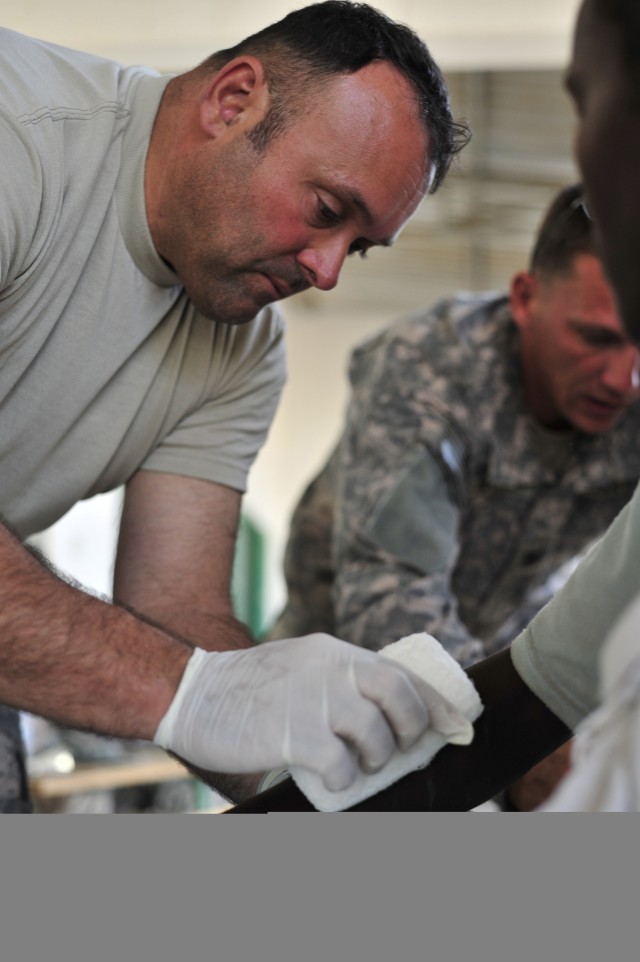
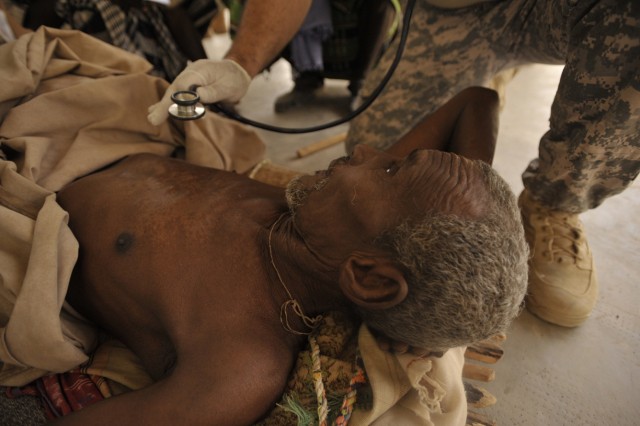
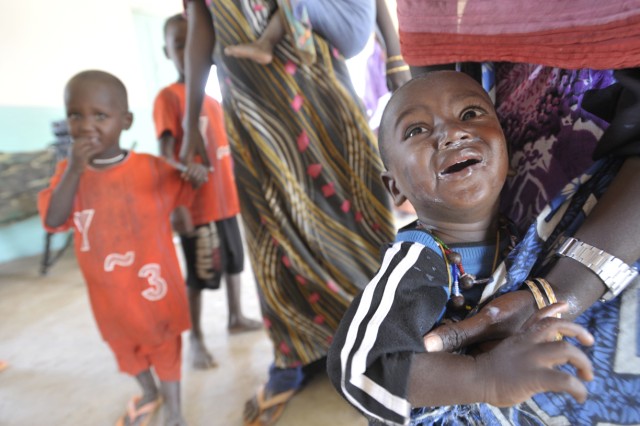
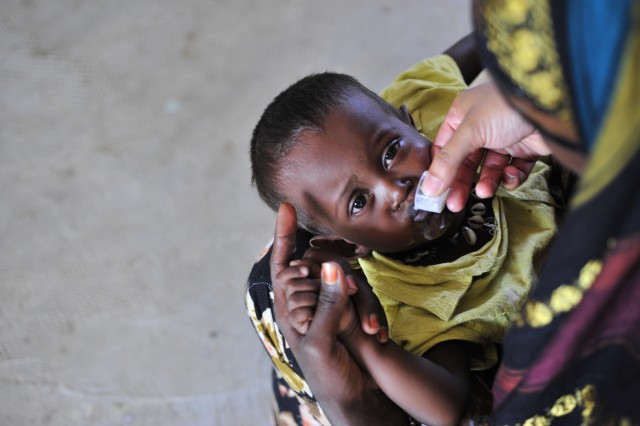

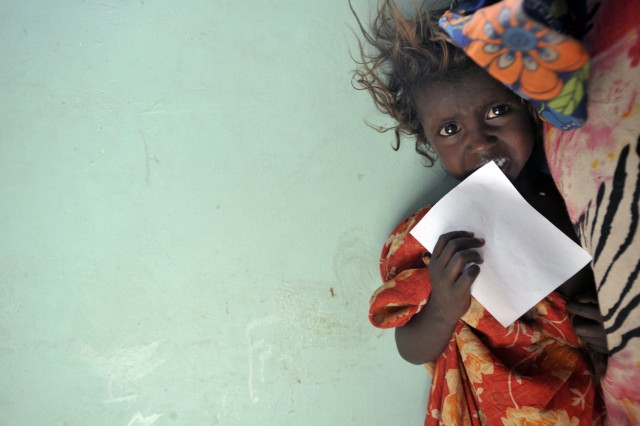


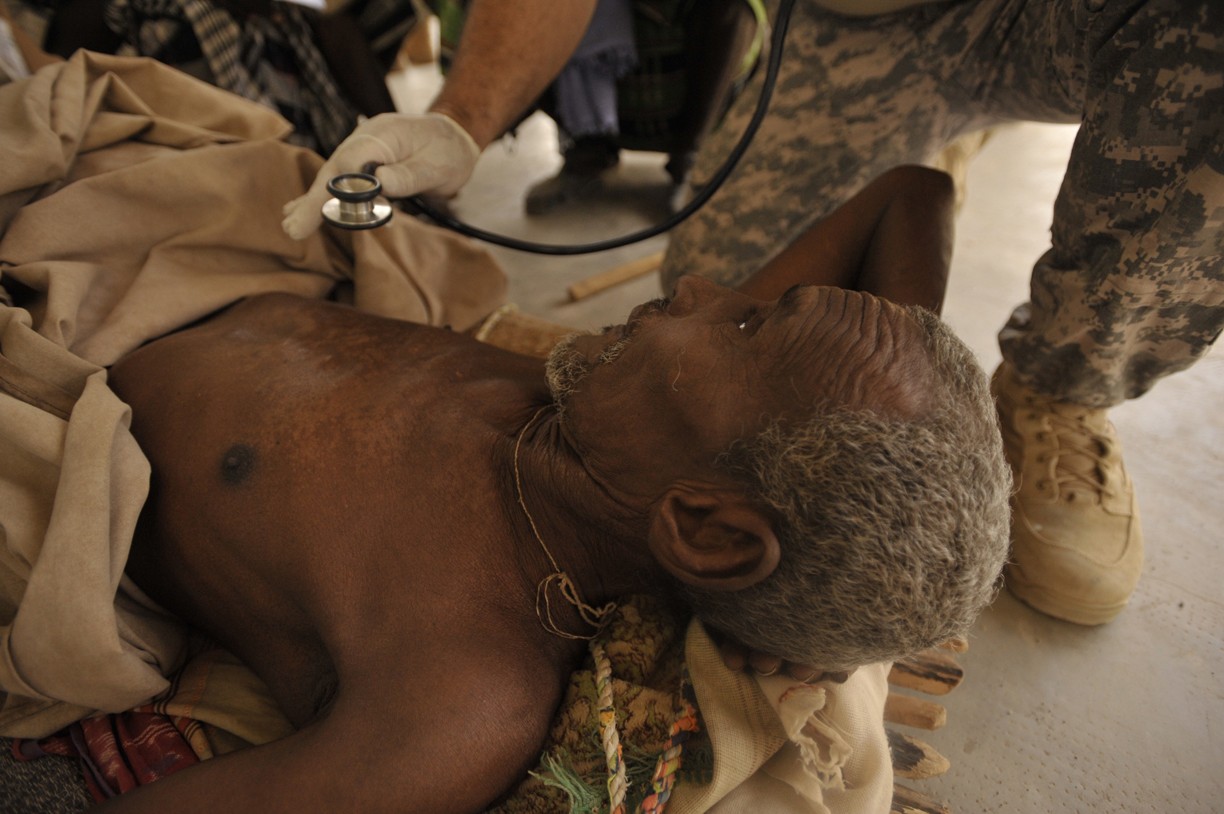





Social Sharing